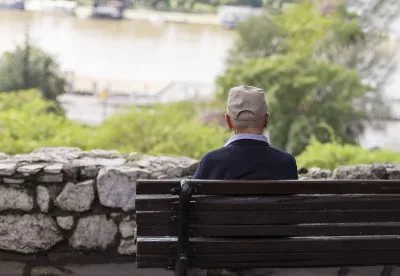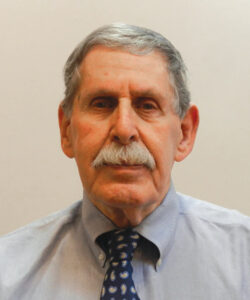
Home » Loneliness is a national problem. Volunteering can help
Loneliness is a national problem. Volunteering can help

January 12, 2024
When the Centers for Disease Control and Prevention (CDC) speaks to the public, it is usually to warn of a disease that threatens our well-being.
However, a recent CDC warning focuses on an issue of a different sort: the public health aspects of social isolation among seniors.
“Loneliness and social isolation among older adults are serious public health risks affecting a significant number of people in the United States and putting them at risk for dementia and other serious medical conditions,” the CDC said.
How widespread is the problem? The agency cites a report from the National Academies of Science, Engineering and Medicine that says “one-third of adults 65 and older feel lonely and nearly one-fourth of adults 65 and older are considered to be socially isolated.”
If that sounds like you or someone you know – lonely, alone, hungry for companionship – read on. There are agencies to turn to for help, and the CDC lists several of them: Area Agencies on Aging, National Council on Aging, National Institute on Aging. All these agencies and more exist to deal with growing old in 21st century America.
Ways to stave off loneliness
But there is another solution to isolation, and you will find it right in your own yard. Pick an agency that does good in your community and volunteer to be a part of it. It could be your church or school system, or it could be the American Red Cross, which aids disaster victims the world over.
A chapter of the Red Cross is headquartered in Kennewick and it can direct you to a dozen Red Cross activities that will get you out in the world and involved. About 90% of all Red Cross workers around the U.S. are volunteers.
On a personal note, I am one of them. I came aboard in the wake of Hurricane Katrina in 2005. Since then, I have responded to disasters in New York, assisted at Red Cross blood drives, taught preparedness to both adults and schoolkids, and collected money to support the Red Cross at various public events.
These days I’m a writer for the Red Cross Northwest Region (which includes Washington and Northern Idaho), and I write this column to teach the lessons in preparedness the Red Cross wants to share.
As a Red Cross volunteer, I help do good in my community. I have the satisfaction of having helped others in times of crisis. I avoid isolation by being part of a group of caring, committed people. I still volunteer for the Red Cross at age 90 and will stay a volunteer for as long as I can.
If you wonder whether you suffer from isolation, the CDC offers a definition. Read it and see if it applies to you: “Loneliness is feeling alone and disconnected from others. It is feeling you do not have meaningful or close relationships or a sense of belonging. It reflects the difference between a person’s actual and desired level of connection. This means that even a person with a lot of friends can feel lonely.”
Increased health risks
If you question how severely being alone can harm you, the CDC warns that “social isolation and loneliness have been linked to increased risk for heart disease and stroke, type 2 diabetes, depression and anxiety, addiction, suicidality and self-harm, dementia and earlier death.”
To put numbers on how much harm isolation can cause, the CDC has statistics to back up its warning. It reports that social isolation can increase your risk of:
- Dementia by 50%.
- Heart disease by 29%.
- Stroke by 32%.
Some are at greater risk than others. The CDC warns your risk of serious consequences is greater if you live alone, have a chronic disease or disability, have a low income or are lesbian, gay, bisexual or transgender.
To step back into how volunteering can reduce social isolation, you can get as much out of volunteering as you put into it.
Whatever your interests and whatever your background, there is an activity that should be just right for you. Don’t worry if you lack the skills or training. Every role that volunteers play begins with training.
I began as a disaster responder in New York – bringing relief to victims of such disasters as fires, floods, winter storms and more. Before I went out on my own, I took five courses and did more than a dozen response runs under the supervision of experienced responders.
Ways to help
Other ways to assist at Red Cross include helping at blood drives or teaching disaster preparedness at schools and to other groups in your community. If you have skills, you can teach first aid or swimming. Many doctors and nurses serve the Red Cross when they retire from active practice.
The Red Cross serves the military in a dozen ways through its Service to the Armed Forces program. The Red Cross Hero Care Network unites service members with their families in times of crisis or tragedy.
Volunteers help service members with medical or financial issues. Many volunteers work at military hospitals. It’s important to note that volunteers can do a job that takes them into the field, but they can also contribute by working from home. Some have traveled to disaster sites throughout the continental U.S. and in Guam, Maui and Mexico. Others can do their jobs virtually, via computer, while at home.
As for how to volunteer, start the process by logging in at redcross.org/volunteer.
Kennewick is headquarters of the Central and Southeastern Washington Red Cross chapter. It is located at 7202 W. Deschutes Ave., and the phone is 509-783-6195.
The chapter executive director is Michele Roth, who was a Red Cross volunteer before taking her present job. “Volunteer for the Red Cross and you will meet new people, be part of a purposeful community and make an impact on the lives of others,” she said.
As an example of what Tri-Cities residents can do as volunteers, about 100 Tri-Citians worked at the Run for the Red Turkey Trot Race on Thanksgiving Day.
Go to: redcross.org/northwest.
Gordon Williams is a volunteer with the American Red Cross Northwest Region Communications Team.
Latest News Senior Times





